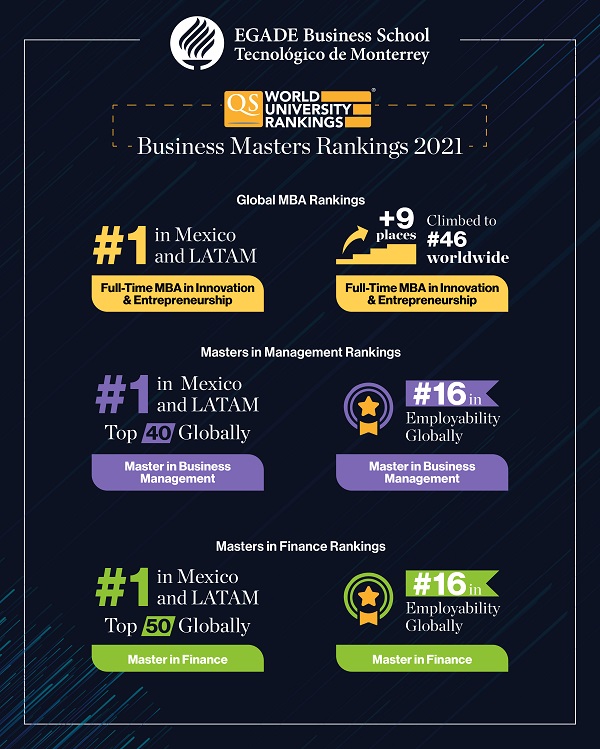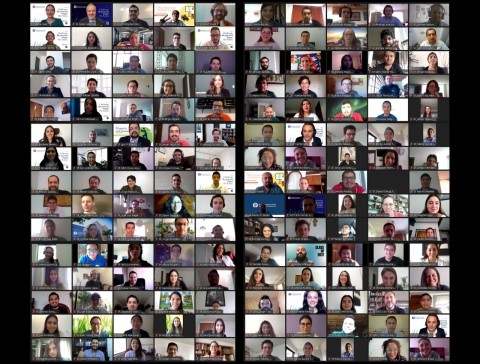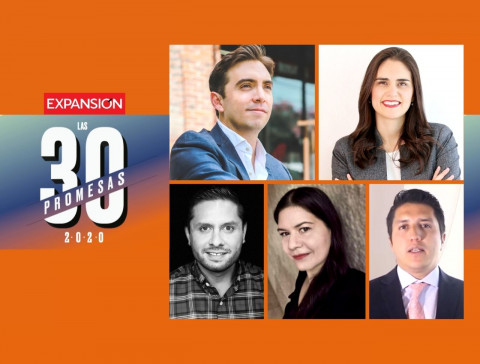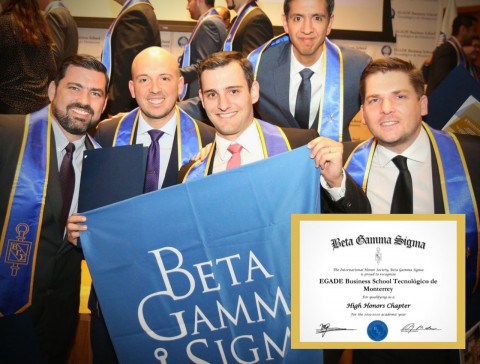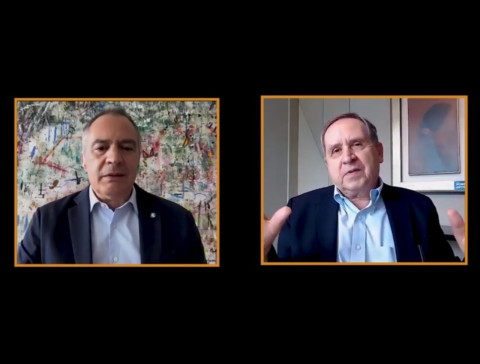EGADE Leads QS Business Masters Rankings 2021 in Mexico & Latin America for 4th successive year
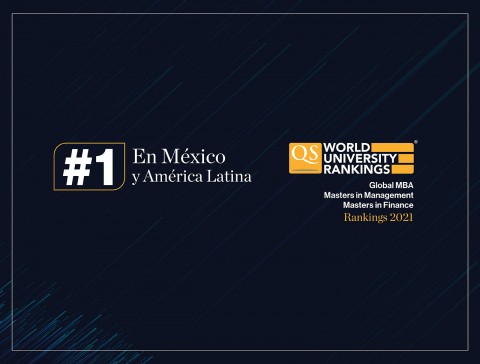
EGADE Alumni are considered among the most attractive to employers globally. The QS 2021 Rankings results include the EGADE MBA in Innovation & Entrepreneurship, Master in Finance and Master in Management programs.
By JOSÉ ÁNGEL DE LA PAZ | EGADE BUSINESS SCHOOL
EGADE Business School at Tecnológico de Monterrey is once again the number one institution in Mexico and Latin America for Full-Time MBA, Master in Finance and Master in Management, according to the 2021 rankings of global higher and business education analyst Quacquarelli Symonds (QS).
For the fourth year running, the School headed the Global MBA Rankings and Masters in Finance Rankings in the region, and appeared for the first time in the Masters in Management Rankings.
The EGADE Business School programs evaluated in these rankings are the Full-Time MBA in Innovation & Entrepreneurship, Master in Finance and Master in Business Management, respectively, which obtained the following results:
QS GLOBAL MBA RANKINGS 2021
The EGADE Full-Time MBA in Innovation & Entrepreneurship program is ranked:
#1 in Mexico and Latin America for 4 consecutive years
#46 worldwide out of 258 qualifying programs
+9 places compared to 2020
#18 in Entrepreneurship and Alumni Outcomes at the global level
#35 in Employability at the global level
QS MASTERS IN FINANCE RANKINGS 2021
The EGADE Master in Finance program is ranked:
#1 in Mexico and Latin America for 4 consecutive years
#43 worldwide out of 166 qualifying programs
#16 in Employability at the global level
#48 in Value for Money at the global level
QS MASTERS IN MANAGEMENT RANKINGS 2021
The EGADE Master in Business Management program is ranked:
#1 in Mexico and Latin America, entering the ranking for the first time
#40 worldwide out of 148 ranked programs
#16 in Employability at the global level
#40 in Alumni Outcomes at the global level
The QS Business Masters Rankings 2021 highlights the very best graduate masters programs across the world. All qualifying schools must be accredited by either AACSB, AMBA, EQUIS (EGADE Business School holds all three accreditations, known as the “Triple Crown”).
The rankings measure Employability, Entrepreneurship and Alumni Outcomes, Return on Investment, Thought Leadership and Class and Faculty Diversity. Collectively these rankings cover the post-graduate programs most in-demand amongst employers around the world.
QS also considered the reputation of specific business schools from the perspective of nearly 37,000 global employers and more than 34,000 global academics. The QS methodology included mapping the education paths of 27,831 successful alumni back to specific institutions.
EGADE Business School scored top results in several categories including for Employability, positioned #16 worldwide for its Master in Finance and Master in Business Management, and #35 for its Full-Time MBA, as well as Entrepreneurship and Alumni Outcomes, in which its Full-Time MBA was ranked #18 worldwide.
The Dean of EGADE Business School and the Undergraduate Business School at Tecnológico de Monterrey, Dr. Ignacio de la Vega, commented: “The QS Business Masters and Global MBA annual rankings are among the most rigorous and recognized comparative studies of business education programs and the opinion of employers and leaders globally. The leadership positioning of EGADE in Mexico, Latin America, and recognized amongst the world's best ratifies our commitment as an institution to constant and audacious innovation and to academic excellence in learning and research with relevance and impact. We take pride in our global community of Alumni in their many achievements as business and entrepreneurial leaders, and we are further inspired to shape, with determination and resilience, the many challenges and opportunities we face in transforming our economy and society.”
The complete results can be consulted here:
- QS Global MBA Rankings 2021
- QS Masters in Finance Rankings 2021
- QS Masters in Management Rankings 2021
